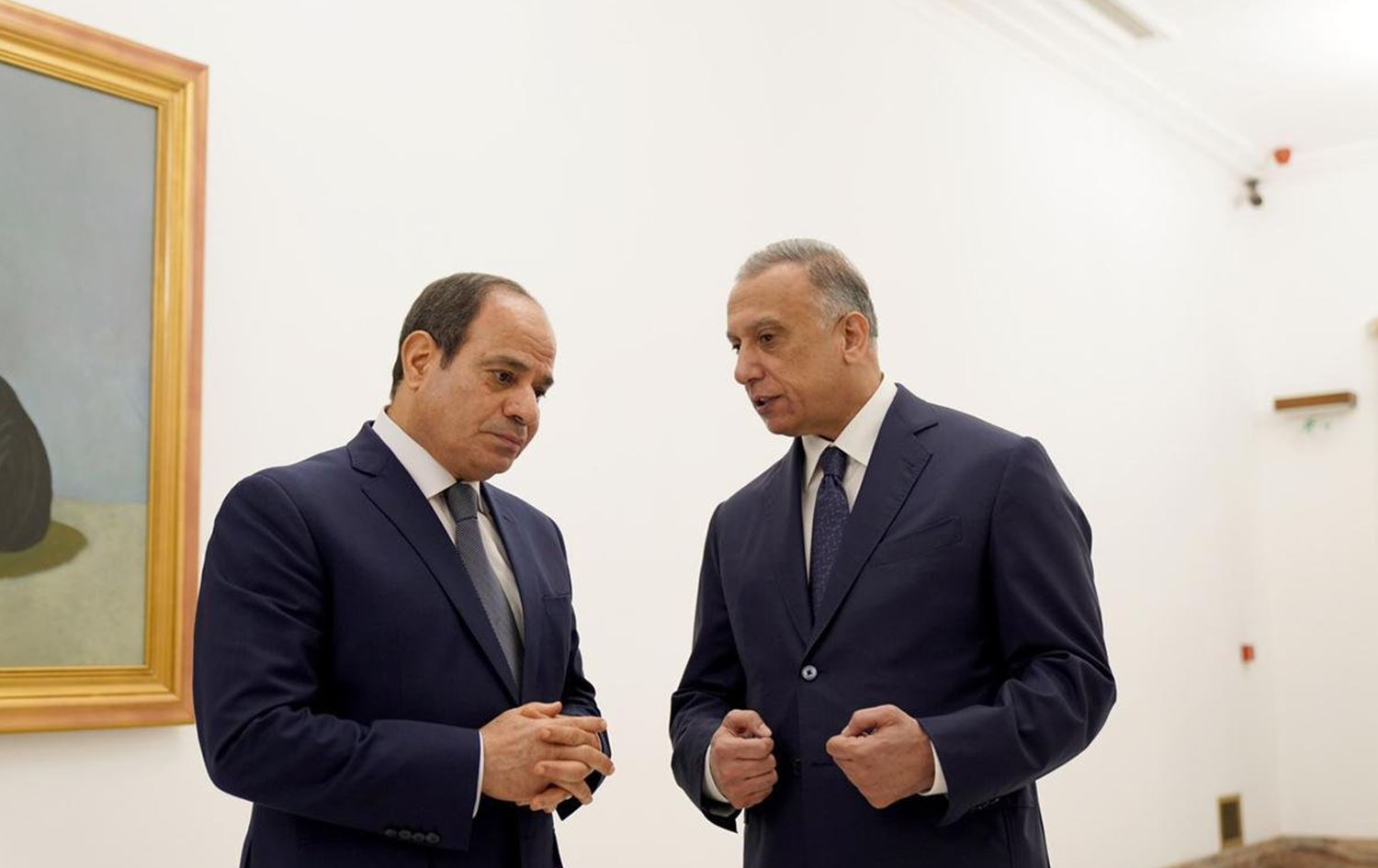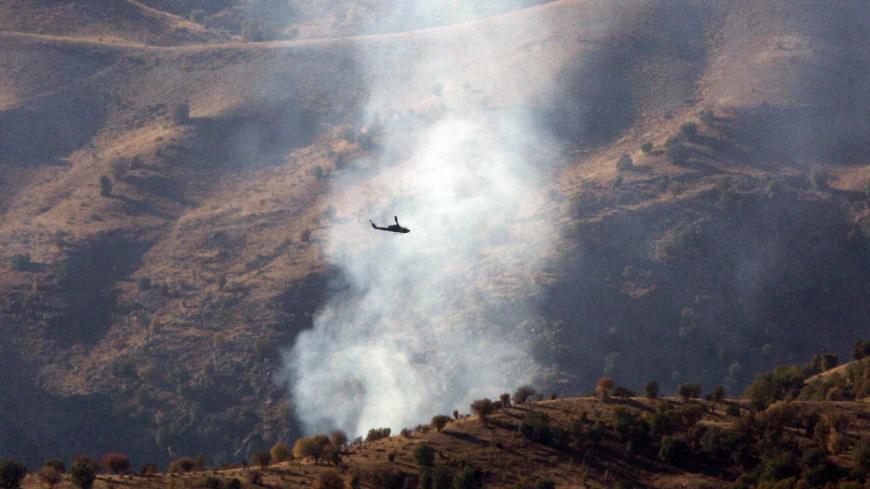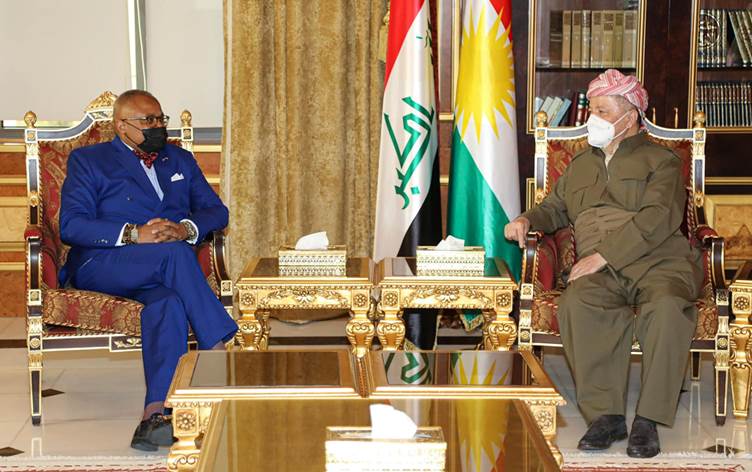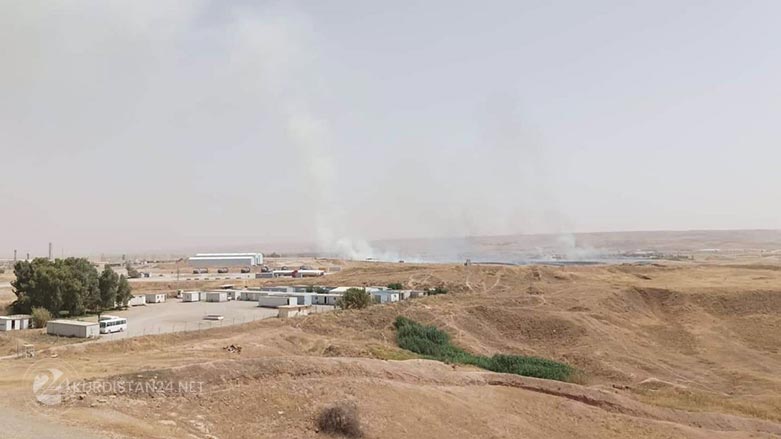Shkoi Kurdistan-
In the new Joint Coordination Centre in Makhmour, Kurdish and Iraqi forces are standing side-by-side, united against a common enemy and hopeful their cooperation will expand to completely defeat the Islamic State group (ISIS).
“We can in the future perform activities together against those terrorists that have hidden themselves in bases in places called the disputed territories,” Brig. Gen. Idris Khdir, deputy commander of Division 14 of the Iraqi Army in Makhmour, told Rudaw on Monday.
Makhmour lies within territory whose control is disputed by the Kurdistan Regional Government (KRG) and the federal government. Iraqi forces drove the Peshmerga out of these areas in 2017 after the Kurdistan Region’s independence referendum, but have not been able to cement their control in what is often rugged terrain and home to ethnically mixed populations. In some areas, the gap between the two security forces is 40 kilometers wide.
ISIS remnants have taken advantage of this security void. They have “successfully exploited gaps in security coverage in disputed areas along the boundary that separates the Iraqi Kurdistan Region from the rest of Iraq,” the Pentagon stated in its latest quarterly report on anti-ISIS operations.
Kurdish and Iraqi forces have carried out separate operations backed by the US-led Coalition to root out ISIS, but the group is still able to carry out deadly attacks on civilians and security forces.
Four new Joint Coordination Centres, including the one in Makhmour, will see Kurdish and Iraqi forces collaborating and sharing intelligence to combat ISIS in these areas.
“Whether it’s daily joint operations or for good, we should unite forces,” Brig. Gen. Osman Barwari, head of the Peshmerga team in the Makhmour Joint Coordination Centre, said. “We don’t think it’s good that a Peshmerga force and Iraqi Army force are sitting opposite each other, because we both have one enemy, and that is Daesh [ISIS].”
Barwari added that one of their important missions is to search their borders to measure the security gap and “secure a plan to fill those gaps.”
Joint Coordination Centres have also been established this week and last week in Diyala province, Kirkuk’s K1 military base, and Nineveh province. These centres will “close that gap” and cut off ISIS remnants, the spokesperson for the global coalition against ISIS, Wayne Marotto, said on Sunday.
The cooperation was the fruit of months of meetings between Kurdish and Iraqi political leadership and military officials. A 2020 cooperation agreement was never implemented between the two sides, who hold historic distrust of each other. But not everyone is happy with the new deal. The Turkmen front is concerned that combatting ISIS may be used as an excuse for the Peshmerga to return to the key city of Kirkuk.
The current agreement does not provide for the joint deployment of forces or basing Peshmerga in Kirkuk, but the forces on the ground are optimistic it is a first step to greater cooperation.
Khdir, the Iraqi deputy commander in Makhmour, hopes that working with the Peshmerga will make life easier for people who travel through the disputed area. “The other thing that is important we want to do in the future is the elimination of all the abundant checkpoints between us. Establish a joint checkpoint so that when our people travel through those places, they can travel easily between us,” he said.




